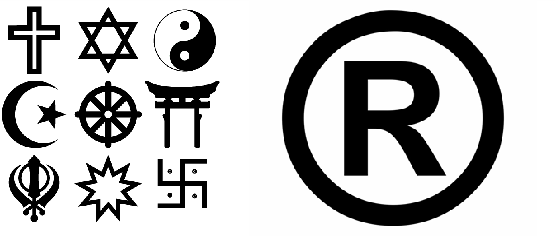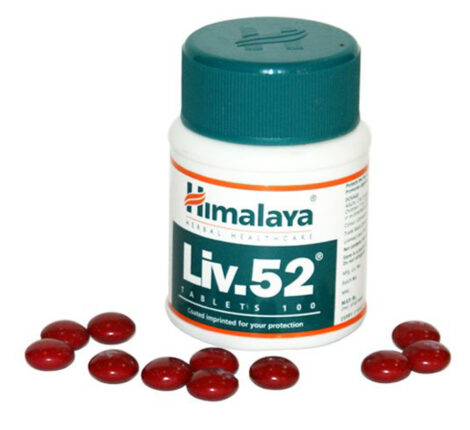Can Religious Symbols Be Granted Trademark Protection?
Introduction
India is a pluralistic nation with many faiths, and everyone believes in their religion, and religious symbols are also considered an integral component of religious history. The Indian Constitution also declares that India is a secular republic, meaning that it does not have a state religion. The people of Indian are free to practice whatever religion they want. Article 25(1)1 of the Indian Constitution protects and secures citizens’ freedom to profess, observe, and spread their faith openly.
In India, everybody has the right to freedom of worship, and religious names in trade and commerce are common. People are so emotionally committed to their religious beliefs that it is convenient for companies to link their goods and services to the same. What if, on the other hand, any person wants to trademark the name of the God he worships? Imagine waking up in a world where Trusts have proprietary rights to depictions of famous deities; being charged under Section 29 2 of the Trade Marks Act, 1999 (hereinafter referred as TM Act) for selling a Lord Hanuman idol; or being unable to buy a Shri Ganesha calendar from a local seller because a particular corporation has trademarked the logo. Is this true, you may wonder? Fortunately, trademarking pictorial depictions of deities is not currently practicable.
India’s Position
Section 2(1)(zb)3 of the TM Act deals with the definition of ‘trademark’, which states that “trademark means a mark capable of being represented graphically and which is capable of distinguishing the goods or services of one person from choose of others and may include the shape of goods, their packaging and combination of colours”. So, the literal meaning of trademark is a mark that can be of graphical representation denotes the presence of a relationship in the course of trade between the services or goods and a person having the right as proprietor/permitted user.
Section 9(2)(b)4 of the TM Act deals with the grounds for the refusal of the application of trademark that a mark shall not be registered as a trademark “if it contains or comprises of any matter likely to hurt the religious susceptibilities of any class or section of the citizens of India”. Therefore, awarding trademark registration of religious symbols would create a risky precedent, as it is likely to damage people’s faith in temples and sacred places in general.
Article 25 of the Constitution provides ‘freedom of conscience and free profession, practice and propagation of religion’. If any trust or an organization secures the trademark on any religious symbols, then they will have an exclusive right to use the registered mark. In other words, the devotees will be precluded from using that registered mark that leads to the violation of Article 25 of the Constitution.
The Eighth Report on the Trade Marks Bill, 1993, provides that any mark about gods, goddesses, or places of worship should not be registered as a trade mark under normal circumstances.5
In the case of Lal Babu Priyadarshi v. Amritpal Singh, 6The question was whether the term “RAMAYAN” (the name of a holy book) could be registered as a trademark under the Trade Marks Act, 1999 (Act) or if its registration were barred under Section 9(2) of the Act. Court held that “the word ‘Ramayan’ represents the title of a book written by Maharishi Valmiki and is considered to be a religious book of the Hindus in our country. Thus, using exclusive name of the book ‘Ramayan’ for getting it registered as a trademark for any commodity could not be permissible”.
In the case of Freudenberg Gala Household Product Pvt. Ltd. vs. GEBI Products7, the question before the Bombay High Court was whether Respondent’s “MAHALAXMI” mark, which is used on brooms, is similar to plaintiff’s ‘LAXMI’ mark. The High Court determined that it is not an infringement because Hindu god names are not exclusive and cannot be monopolized by one party.
In the case of Bhole Baba Milk Food Industries Ltd v Parul Food Specialities Pvt. Ltd.8, Court held that according to the Puranas, the common name ‘KRISHNA’ has not developed secondary uniqueness for Lord KRISHNA, who is a popular Hindu god most usually linked with milk and milk products, and “this would undoubtedly diminish a proprietary claim presented by any individual, in connection to Krishna with dairy products.” As a result, the Court determined that the appellants do not have a monopoly on using Krishna’s name in connection with dairy products.
In the case of Suo motu Proceedings Vs. Controller General of Patents, Design and Trademarks9, the issue before the court is the trademark registered of images of ‘Attukal Deity’ and ‘Sabarimala of Women’. The trademarks in question were filed in Class 42 for registration with respect to ‘temple services, social services, welfare services, and cultural activities.’ The Court held that the deity is the ‘Attukal Bhagavathy’ and the Trust has the managerial position of the idol’s estate. In this instance, the fact that the god, ‘Attukal Bhagavathy’, was dedicated in the temple whose maintenance is overseen by the Trust is undeniable. According to the pleadings, the registration of the image and the appellation is for the services mentioned earlier, which are included in Class 42 of the Fourth Schedule of the Trademarks Rules, 2002. Based on the preceding user’s common law right to the image and appellation, the applicant had applied, which was made accessible to the Trust. he Trust and the official respondents assert that the idea and appellation have developed a unique character in connection to the activities mentioned above and services associated with the temple due to prolonged and continuous usage, as stipulated under Section 9 of the TM Act. The Court thus finds no reason why the Temple Trust should not be granted registration of the image and appellation under the Trademark Act or the Rules.
According to the researcher, the Kerala High Court decision in the case of Suo motu Proceedings Vs. Controller General of Patents, Design and Trademarks is not suitable for the following reasons; the Goddess’s picture was the Intellectual Property of someone likely no longer traceable and the Trust is only a custodian of something that is in the public domain. The actual idol/statue of ‘Kannagi Devi’ is the Trust’s property, not its intellectual property. The Court did not consider whether the contested trademark is in the public domain or not. The registration confers the owner the right to use the trademark in its entirety – as far as the Said Services are concerned – under Section 17(1) of the TM Act, 1999. The Trust receives the exclusive right to use the immediate marks for the mentioned services due to instant registration (just like any other trademark registration). As a result, using the instant marks for the said Services (which is entirely within his Constitutional right) constitutes a breach of the TM Act, 1999. If the trademark, in this case, is maintained, then this leads to many issues. We may see that Government may file the trademark registration for the word ‘India’ for the Government’s welfare activities.
Conclusion
There are no hard and fast rules on whether religious symbols may be trademarked or not. Certain principles develop, such as the fact that sacred marks or logos should not be permitted to be registered, as stated in the Parliamentary Standing Committee’s Eighth Report on the Trade Marks Bill, 1993. Likewise, no one may claim ownership of God, religious scriptures, or symbols.
- Article 25, Freedom of conscience and free profession, practice and propagation of religion, Constitution of India, 1950.
- Section 29, Infringement of registered trade marks, Trade Marks Act, 1999.
- Section 2(1)(zb), Trade mark, Trade Marks Act, 1999.
- Section 9, Absolute grounds for refusal of registration, Trade Marks Act, 1999.
- Clause 13.3 of the Eighth Report on the Trade Marks Bill, 1993.
- Amritpal Singh vs Lal Babu Priyadarshi,2005 (30) PTC 94 IPAB.
- Freudenberg Gala Household Product Pvt. Ltd. vs. GEBI Products, MANU/MH/1859/2017.
- Bhole Baba Milk Food Industries Ltd v. Parul Food Specialities Pvt. Ltd., FAO(OS) 109/2011.
- Suo motu Proceedings Vs. Controller General of Patents, Design and Trademarks, W.P.(C). No.14153 of 2009 (S).




